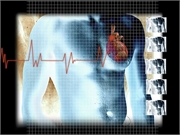Study is first to validate Society for Cardiovascular Angiography and Intervention system
MONDAY, Dec. 9, 2019 (HealthDay News) — The new Society for Cardiovascular Angiography and Intervention (SCAI) cardiogenic shock (CS) classification scheme provides risk stratification for hospital mortality, according to a study recently published in the Journal of the American College of Cardiology.
Jacob C. Jentzer, M.D., from the Mayo Clinic in Rochester, Minnesota, and colleagues retrospectively analyzed data from cardiac intensive care unit (CICU) patients admitted between 2007 and 2015. The new SCAI five-stage CS classification scheme (stages A through E) was used to retrospectively classify CICU admission data based on the presence of hypotension or tachycardia, hypoperfusion, deterioration, and refractory shock.
The researchers found that among the 10,004 unique patients, 43.1 percent had acute coronary syndrome, 46.1 percent had heart failure, and 12.1 percent had cardiac arrest. The proportion of patients classified in each SCAI CS stage (A through E) was 46, 30, 15.7, 7.3, and 1 percent, respectively. Unadjusted hospital mortality by stage was 3, 7.1, 12.4, 40.4, and 67 percent, respectively. In an adjusted analysis, each higher SCAI shock stage was associated with increased hospital mortality (adjusted odds ratio [aOR], 1.53 to 6.80) compared with SCAI shock stage A, and the risk for hospital mortality was higher in each subgroup with the presence of cardiac arrest (aOR, 3.99). For the subset of patients with acute coronary syndrome or heart failure, results were consistent.
“This classification system could be implemented as a clinical and research tool to identify, communicate, and predict the risk of death in patients with, and at risk for, CS,” the authors write.
One author disclosed financial ties to the medical technology and pharmaceutical industry.
Abstract/Full Text (subscription or payment may be required)
Copyright © 2019 HealthDay. All rights reserved.








